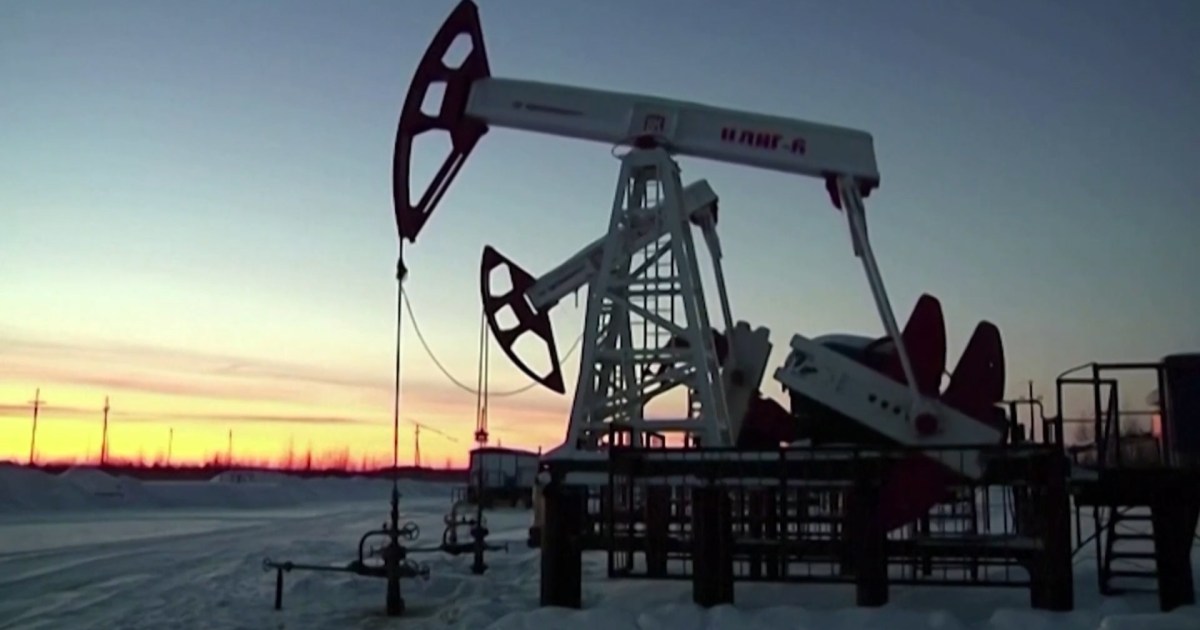A report in the French newspaper "Le Point" said:
By writers Benjamin Quinnell and Marie Dancer, Konstantin Simonov, director of the National Energy Security Think Tank, believes that the announced departure of international companies will not have serious effects on the Russian energy sector, because the work of some ongoing projects has already begun and will continue with or without it.
After BP, British oil giant Shell announced Tuesday its intention to withdraw from Russian oil and gas "gradually, in line with the new directives of the British government" regarding the Russian invasion of Ukraine.
Simonov asserts, according to the authors of the report, that the government classified Western investors into three groups, and as a consequence;
You will study the consequences of their exit from the Russian market.
For companies that chose to leave to support the sanctions, Simonov adds, they will remember the long-term consequences of their move when they want to return.
As for companies like TotalEnergies, they will continue to manage the fields they are working on but not embark on new projects.
And therefore;
They will remain shareholders in Russian companies and will continue to receive and benefit from dividends.
Regarding companies such as Shell or Exxon, which have announced that they will sell their shares under political pressure, but in reality they will not be able to sell their shares, and it is possible that they will close their offices in Moscow but they will not be able to leave the fields in which they have started investing and give up the revenues from Russia.
"After this mass withdrawal of some companies, the main question remains: are Western countries ready to stop importing oil and gas from Russia? Will it be too expensive given that Russian oil shipments are not only reliable but also cheap," Simonov says.
Only a complete blockade can really hit the Russian economy
The authors quote Olivier Appert, a member of the Academy of Technologies and consultant to the Energy Center at the French Institute of International Relations, as saying that foreign energy companies and industrial groups are bringing finance, technology and skills to Russia, as in the yamal project led by russe Novatek, which has been specially accredited on Total Energy and Technip;
Noting that if these companies withdraw, Moscow will find it more difficult to develop its energy potential.
The authors point out that Western sanctions have begun to affect Russian oil exports, and if oil prices rise, the price of a barrel of crude oil from the Urals will decline compared to Brent crude, because Western buyers fear the reactions of governments, financiers and non-governmental organizations, according to Appert, who confirms It is difficult to transport Russian oil because the national company Sovcomflot has been boycotted, and because some transport companies are no longer accepting new Russian shipping contracts.
Appert noted that Moscow could certainly turn to Asia;
As the price of Urals crude has risen, and despite Russia's dependence on oil exports to China, increasing these exports requires building new pipelines.
Appert considered - according to what the authors reported - that a complete blockade of oil and gas could harm the Russian economy, which is what the United States started with;
As it imposed this complete ban on Tuesday, the eighth of March, which will not affect America, as it is one of the oil and gas exporting countries.
The authors conclude their report with what Appert says that if Europe can redirect its oil purchases in the future, it cannot do without Russian gas;
Germany depends on it for 50%.
In fact;
The two sides cannot dispense with each other - according to Abrett - the Russians need foreign currency and the Europeans need energy, and these trade exchanges have been successful for 50 years, but the Russian war on Ukraine has turned the scales of this economic game.

